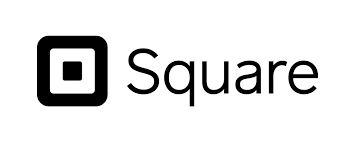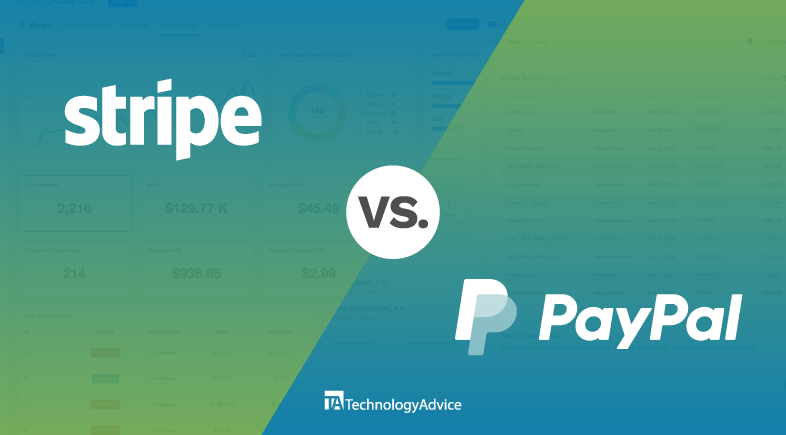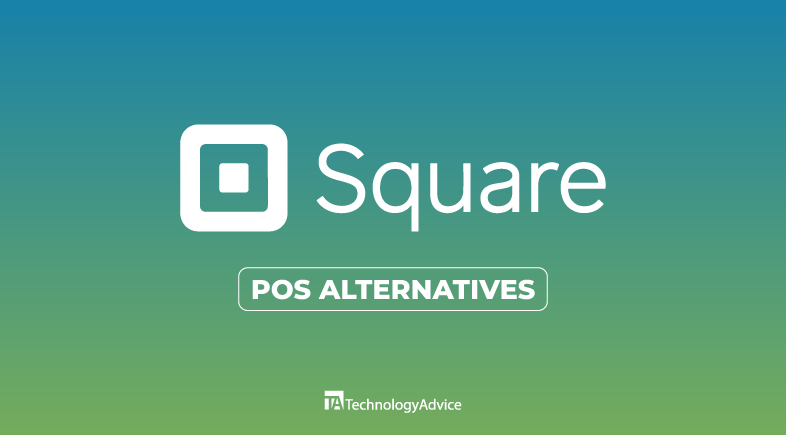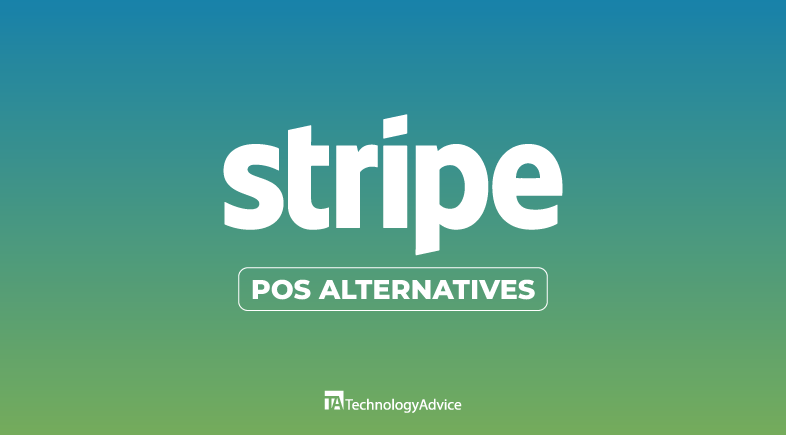When running a consignment store, choosing the right point-of-sale (POS) system can make all the difference in streamlining your operations and maximizing profitability.
A consignment POS system is specifically designed to handle the unique needs of consignment businesses, allowing you to efficiently manage inventory, track consignor sales, automate payouts, and generate detailed reports. By using one, you can save time, reduce errors, and provide a better experience for both your customers and consignors.
We evaluated more than 18 of the top options on the market today before narrowing our list down to the five best consignment store software for 2025.
Company
Our Score (out of 5)
Best Use Case
Key Features
Learn More

4.51
Overall consignment POS
Consignment management, integrated payouts

4.12
E-commerce integration
Multichannel sales, app integrations

4.09
Small businesses
Free plan, ease of use

4.04
Custom solutions
Customizable reporting, consignor portal

4.00
Advanced features
Detailed analytics, multi-location support

Ricochet: Best overall consignment POS
Overall Score
4.51/5
Pricing
4.5/5
POS features
4.31/5
Consignment features
4.69/5
User experience
4.5/5
User reviews
4.38/5
Pros
- Consignment specific features
- Customizable pricing structures
- Automated consignor payments
- Integrated e-commerce
Cons
- Limited vendor options
- Transaction fees
- Limited offline functionality
Ricochet is the total package when it comes to consignment POS systems. It’s got all the specialized features you need to streamline your operations, boost your sales, and keep your consignors happy.
This system is designed from the ground up specifically for consignment and resale stores, so it’s got all the features you need to keep things running smoothly. From automated consignor payments and customizable pricing structures to a full suite of inventory management tools, Ricochet has you covered.
With advanced e-commerce functionalities and real-time product synchronization through Ricochet’s webstore builder, you can easily keep your inventory up-to-date across all your sales channels. This is a huge time-saver and helps ensure that your customers always have access to your latest offerings, whether they’re shopping in-store or online.
Compared to other consignment POS systems like ConsignCloud or SimpleConsign, Ricochet really wins when it comes to scalability and user experience. There are no limits on the number of users, consignors, or devices you can connect, which means Ricochet can grow right along with your business. And with its user-friendly interface and responsive customer support, you and your team can get up and running quickly and efficiently, without any headaches.
If you’re dealing with a high volume of consignors or need detailed reporting and multi-location support, Ricochet is hands-down the best choice. Its combination of powerful consignment-specific tools and ease of use makes it a top pick for businesses looking to scale their operations without sacrificing functionality or customer service.
Also read: 5 Best Cloud POS Systems for 2024
Monthly Subscription: $159 per month
Annual Subscription: $1,599 per year (saves over $300 compared to the monthly plan)
Both plans include:
- Point-of-Sale (POS) system
- Inventory management
- Consignor and customer accounts
- Consignor login access
- Payout management
- Consignment and retail reporting
- Customizable dashboard
- Loyalty rewards
- Unlimited devices, registers, inventory, and users
- 3rd party integrations
- Free support and training
- Automatic updates and enterprise-level data security
Add-ons:
Ricochet Web (E-commerce Store):
- Monthly: $79 per month
- Annual: $799 per year
This add-on includes a professional theme for your website, custom styling, real-time product synchronization, domain connection, and automated shipping rates.
- User-friendly interface: Ricochet POS offers a clean and intuitive user interface that simplifies the process for both new and experienced users.
- Consignment-specific features: It includes tailored features for consignment businesses, such as split payments and automatic consignor payouts.
- Customizable pricing structures: The system allows for flexible pricing structures, including percentage-based or flat-rate commissions, which can be tailored to each consignor.
- Automated consignor payments: Ricochet POS can automate the payout process for consignors, saving time and reducing errors.

Shopify: Best for eCommerce integration
Overall Score
4.12/5
Pricing
5/5
POS features
4.13/5
Consignment features
3.13/5
User experience
4.75/5
User reviews
4.06/5
Pros
- Flexible pricing plans
- Wide range of integrations
- Customizable payments and payouts
Cons
- Limited consignment-specific features
- Higher costs for add-ons
- Inventory management limitations
Shopify is tailor-made for shops that want to create a seamless, cohesive experience for their customers, whether they’re browsing in-store or online. It goes beyond the basics of online selling and offers a truly immersive multichannel experience.
With real-time inventory syncing across all your sales channels and advanced product management tools that make it a breeze to categorize and track your inventory across multiple locations, Shopify is the ultimate tool for consignment stores looking to expand their reach.
As you navigate the software, you’ll find a whole host of consignment-specific apps, like Vendor Consignment by Visceral Apps and Aravenda Consignment Software, that can take your store’s functionality to a whole new level. These integrations streamline everything, from consignor payouts and inventory management to detailed reporting, all within one easy-to-use platform. It’s this level of customization and integration that sets Shopify apart from other consignment POS systems, making it the most adaptable and scalable choice for businesses that need top-notch eCommerce capabilities.
Of course, all the bells and whistles in the world don’t mean much if the platform is a nightmare to use. Whether you’re new to online selling or just looking to simplify your existing operations, Shopify makes it easy to get started and keep things running smoothly. And while some of the more advanced features may come with a bit of an extra cost, it’s a small price to pay for the ability to create a truly seamless connection between your online and offline sales.
Also read: Best POS System for Small Business
Shopify POS Lite: Included in all Shopify subscription plans (from $39/month for the Basic plan).
Features:
- Basic POS functionality
- Unlimited product inventory
- Basic reporting and analytics
- Integration with Shopify Payments
- Custom receipts, order notes, and basic customer profiles.
Shopify POS Pro: $89 per month, per location (or $79 per month when billed annually).
Additional Features Over POS Lite:
- Advanced inventory management (low stock alerts, barcode scanning, inventory tracking)
- Staff permissions and detailed performance tracking
- Advanced retail analytics and custom reporting
- Enhanced customer profiles and loyalty insights
- Omnichannel selling capabilities (buy online, pick up in store, etc.)
- Cart retrieval and in-store order management.
Add-ons and Hardware:
- Shopify POS Go: A mobile POS device with a built-in card reader and barcode scanner, priced at $399.
- Shopify Retail Kit: A bundle including a tablet stand, receipt printer, and cash drawer, starting at $219.
- Transaction Fees:
- Basic: 2.7% in-person, 2.9% + $0.30 online.
- Shopify Plan: 2.5% in-person, 2.6% + $0.30 online.
- Advanced: 2.4% in-person, 2.4% + $0.30 online.
Additional Apps and Integrations:
Shopify’s app marketplace offers various add-ons, such as:
- Zapiet: Enhanced pick-up and delivery system ($29.99/month).
- Evey Events & Tickets: Event ticketing system ($189/month + $0.25 per ticket).
- Flexible pricing plans: Offers a range of pricing plans, allowing businesses to choose a plan that fits their size and needs.
- Seamless integration with Shopify online store: Integrates natively with your Shopify online store.
- Customizable payments and payouts: The system supports customizable payment methods and payout schedules, catering to the specific needs of consignment businesses.
- Wide range of integrations: Extensive app ecosystem allows for easy integration with third-party tools, such as accounting software, shipping solutions, and marketing platforms.

Square for Retail: Best for small business
Overall Score
4.09/5
Pricing
5/5
POS features
4.44/5
Consignment features
2.69/5
User experience
4.5/5
User reviews
5/5
Pros
- No monthly fees for basic features
- No long-term contracts
- Flexible payment processing
- Free plan available
Cons
- Higher transaction fees
- Advanced features require paid add-ons
- Hardware costs
- No built-in consignor portal
With Square, you get a complete package at minimal upfront costs. What sets Square apart from other POS systems like Shopify or Ricochet is its no-nonsense pricing structure. With the Free plan, you can get started with essential features, like basic inventory management and free online store integration, without spending a dime. You only pay transaction fees of 2.6% + 15¢ for in-person payments, making it a budget-friendly option for entrepreneurs and small businesses.
As your business grows, Square’s Plus plan, at just $60 per month per location, offers more advanced features like sophisticated inventory management, purchase order creation, and barcode printing. This means you can scale up your operations without breaking the bank. This is opposed to vendors like Shopify, which require pricey add-ons to get the full consignment functionality you need.
One of the best things about Square is how easy it is to use. The interface is intuitive and straightforward, so you can get up and running quickly, even if you don’t have an IT whiz on your team. Plus, with seamless integration with Square Online, you can manage your in-person and online sales from a single platform. This makes tracking your inventory and sales across multiple channels a breeze, saving you time and headaches compared to systems like Ricochet which might require more manual work or separate integrations to get the same level of eCommerce functionality.
With its balance of essential features at a low cost, Square is a smart choice for businesses that want a practical alternative to more expensive or complicated systems like Shopify or Ricochet.
Square POS Software: Free
Features Included:
- Basic POS functionality
- Unlimited products and employees
- Inventory management (basic)
- Sales reporting and analytics
- Customer directory and engagement tools
- Integrated payment processing
- Support for digital receipts and invoicing
- Integration with other Square services (e.g., marketing, payroll)
Transaction Fees
- In-Person Payments: 2.6% + 15¢ per transaction.
- Online Payments: 2.9% + 30¢ per transaction.
- Manually Entered Payments: 3.5% + 15¢ per transaction.
Add-Ons and Additional Features:
Square for Retail: $89 per month, per location.
- Vendor management
- Purchase order creation and tracking
- Inventory cost management
- Barcode label printing
- Advanced reporting
- Employee permissions and performance tracking.
Square Loyalty: Starts at $45 per month.
- Create and manage customer loyalty programs with customizable rewards and points systems.
- Track customer spending and reward loyal customers automatically.
Square Email Marketing: Starts at $15 per month.
- Email and SMS marketing tools integrated with your POS to target customers based on their purchasing history.
- Automated campaigns and customer segmentation.
Square Payroll: Starts at $35 per month + $6 per employee.
- Integrated payroll management that handles employee payments, tax filings, and benefits management.
Square Online Store: Free for basic use, with transaction fees.
- Integrates your online and in-person sales.
- Features include website building tools, online payment processing, inventory syncing, and order management.
Hardware Costs
- Square Reader for Contactless and Chip: $59.
- Square Stand for iPad: $149.
- Square Register: $799.
- Square Terminal: $299.
- Flexible payment processing: Square offers competitive, flat-rate transaction fees, and supports a wide range of payment methods, including credit cards, mobile payments, and gift cards.
- Integrated inventory management: The system includes inventory management features, which can be helpful for tracking consignment items and managing stock levels.
- Square dashboard: The centralized dashboard allows businesses to manage sales, inventory, customer data, and other key aspects from one place.

ConsignCloud: Best for custom solutions
Overall Score
4.04/5
Pricing
3.5/5
POS features
3.88/5
Consignment features
4.31/5
User experience
4/5
User reviews
4.69/5
Pros
- Scalability
- Security
- Consignment-focused features
- Integrated reporting
Cons
- Updates and maintenance
- Consignor communication
- Inventory sync issues reported
ConsignCloud earned its spot on this list as the best consignment POS for custom solutions due to its flexibility, user-friendly interface, and strong focus on consignment-specific features.
Compared to more rigid systems like Ricochet or SimpleConsign, ConsignCloud offers the flexibility to tailor its features to fit your operations, whether you’re managing a growing list of consignors or need specific integrations with other tools you already use.
If you’re planning to expand your business or already handle a high volume of consignors, this system is built to grow with you. While Ricochet offers consignment-specific tools, it’s ConsignCloud’s ability to scale effortlessly while maintaining performance that sets it apart. The system can manage thousands of consignors without slowing down, making it ideal for businesses looking to scale up.
ConsignCloud also offers customizable analytics, which is a game-changer if you rely on detailed insights to run your business. You can generate reports tailored to your specific needs, something that’s not as easy to achieve with other consignment POS systems. While the reporting features are powerful, keep in mind that some users have found them a bit complex to configure — so there may be a learning curve if you’re not particularly tech-savvy.
Its focus on consignment-specific needs, such as integrated consignor portals and automated payouts make managing consignor relationships smoother and more efficient, which is essential if you’re handling a large number of accounts. While Square for Retail offers basic consignment features, ConsignCloud delivers a more specialized set of tools that are crucial for consignment businesses.
Of course, ConsignCloud isn’t without its drawbacks. Some users have reported issues with inventory sync and challenges when integrating third-party applications. However, if you’re looking for a POS system that offers deep customization and can scale with your business, these trade-offs might be worth it. The pricing is competitive, especially considering the custom solutions it offers, but you may need to budget for additional integrations if your business has specific needs.
Also read: Best Mobile POS Systems
Basic: $119 per month
Professional Plan: $149 per month.
Enterprise Plan: $179 per month.
Add-Ons:
- Additional locations: Businesses operating multiple locations can add extra sites for an additional monthly fee, usually around $25 per location.
- Real-time tracking: Monitor inventory levels, track consigned items, and receive alerts for low stock.
- Customizable analytics: Access data analytics to gain insights into business performance and trends.Activity logs: Monitor user activity within the system to track changes and ensure accountability.

Lightspeed – R Series: Best for advanced features
Overall Score
4.0/5
Pricing
5/5
POS features
4.75/5
Consignment features
3/5
User experience
3.88/5
User reviews
3.75/5
Pros
- Comprehensive inventory management
- Multi-channel sales integration
- Advanced CRM features
Cons
- Complexity for smaller stores
- Customization limitations
This powerhouse of a system is built for businesses that need a level of sophistication and depth that goes far beyond what you’ll find with options like Square for Retail or Ricochet. If you’re running a larger consignment store or dealing with high-volume sales, Lightspeed R-Series is the tool you need to take your operations to the next level.
One of the biggest strengths of Lightspeed is its inventory management capabilities, which are second to none. While Square for Retail can handle the basics for small to medium-sized businesses, Lightspeed is designed to tackle the most extensive and complex inventories, even across multiple locations. With features like bulk item management, automated purchase orders, and demand forecasting, Lightspeed gives you the tools you need to stay on top of your inventory and minimize manual errors. It’s a night and day difference compared to a system like Ricochet, which is great for consignment-specific tasks but can’t quite keep up when it comes to managing large, complex inventories.
It also boasts some of the most comprehensive reporting and analytics tools you’ll find in any consignment POS system. Far from the basic reporting you get with Shopify, Lightspeed gives you the power to create in-depth, customizable reports that let you see your business from every angle. Whether you want to track profit margins, analyze sales in real time, or create custom reports based on specific metrics, Lightspeed does it all.
Another area where Lightspeed really stands out is its integration capabilities. Sure, Shopify is great for eCommerce integration, but Lightspeed takes a more comprehensive approach. With seamless integrations for accounting software, loyalty programs, and a huge range of third-party applications, Lightspeed makes it easy to manage every aspect of your business from a single, unified platform.
It’s a level of integration that systems like Ricochet and Square for Retail just can’t match, which can be a real problem as your business grows and your needs become more complex.
Also read: What is a POS Terminal?
Basic plan: Starts around $89 per month when billed annually.
Features included:
- 1 register.
- Basic inventory management.
- Sales tracking and reporting.
- Integrated payment processing (with Lightspeed Payments).
- 24/7 customer support via phone and chat.
- Basic CRM features for customer tracking.
Core plan: Starts around $149 per month when billed annually.
Features included:
- All features in the Basic Plan.
- 1 register.
- Advanced reporting and analytics.
- eCommerce integration (sell online and in-store).
- Accounting integration.
- Supplier catalog access.
- Multi-location support for inventory management.
- Gift cards and store credit features.
- Onboarding and professional service options.
Plus plan: Starts around $289 per month when billed annually.
Features included:
- All features in the Standard Plan.
- 1 register.
- Advanced reporting with custom fields.
- API access.
- Workflows.
- Custom user roles.
Pro Plan: Starts around $269 per month when billed annually.
Features included:
- All features in the Plus Plan.
- 1 register.
- Detailed sales and inventory reports and insights.
- Priority customer support.
- API access for custom integrations.
- Omnichannel capabilities (full integration of in-store and online sales).
Multiple locations: Custom pricing.
Features included:
- All features in the Pro Plan.
- Unlimited registers and locations.
- Tailored features and integrations based on business needs.
- Dedicated account manager.
- Advanced security features.
- Custom development and integrations.
Add-Ons:.
- eCommerce integration: Around $59 per month. Included in higher tier plans.
- Loyalty programs: Implement customer loyalty programs starting at about $39 per month, depending on the complexity and features needed.
- Comprehensive inventory management: Advanced inventory management features, including bulk imports, item variants, and low stock alerts.
- Multi-channel sales integration: Seamless integration with eCommerce platforms allows consignment stores to sell both online and in-store.
- Advanced CRM features: Store and manage customer and consignor information, track purchase history, and run loyalty programs to boost customer retention.
Also read: What are the Different Types of POS Systems?
Finding the right consignment software for your business
Choosing the right consignment software is essential if you want your business to thrive and run like a well-oiled machine.
For smaller businesses, a platform like Square for Retail might be the perfect fit. It’s affordable, user-friendly, and offers all the basic features you need to get up and running quickly. Plus, with its easy integration with third-party consignment software, you can add more advanced functionality as your business grows.
If you’re a larger store with more complex needs, a solution like Ricochet or Shopify might be the way to go. These platforms offer full inventory management, detailed reporting, and seamless integration with your POS system. They’re designed to handle the demands of high-volume consignment businesses and can really help you take your operations to the next level.
Ultimately, it’s about finding the consignment software that fits your business like a glove. Take your time, do your research, and don’t be afraid to ask questions.





